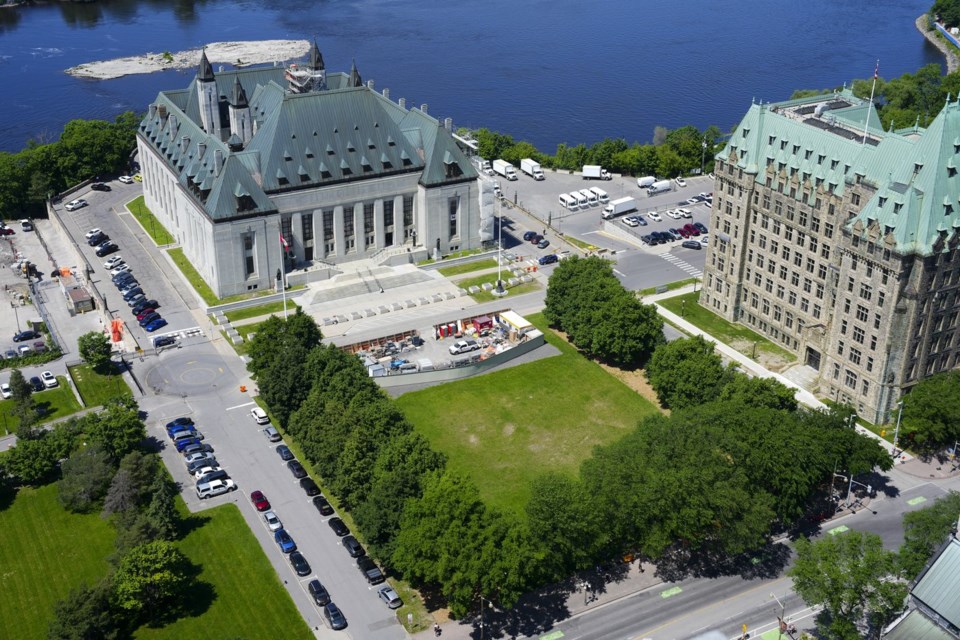OTTAWA ŌĆö Ontario public school board teachers have a Charter-protected right against unreasonable search and seizure in the workplace, the Supreme Court of sa╣·╝╩┤½├Į has ruled.
The top court's decision came Friday in the case of two teachers who were reprimanded after discovery of a digital log about their work-related concerns.
The matter began in the 2014-15 school year when a Grade 2 teacher in York Region began keeping the personal, password-protected log.
She allowed a second teacher to have access to the log, which was stored in the digital cloud but could be accessed using an internet browser on a workplace laptop computer.
One day the school principal, who had learned of the log, entered the classroom of one of the teachers. Seeing her open, unattended laptop, he touched the mouse pad, saw the log on the screen and proceeded to take screenshots with his cellphone.
Printouts of these screenshots were used by the school board to discipline the two teachers.
Letters of reprimand issued in January 2015 noted the teachers used school board technology to access and maintain a log during working hours, making some 100 entries about the principal and another teacher.
The teachers' union filed a grievance, seeking withdrawal of the reprimands and $15,000 in damages for each of the teachers for breach of their privacy rights.
During the lengthy arbitration process, the reprimands were removed from the teachers' files due to a three-year sunset clause.
A labour arbitrator dismissed the grievance in August 2018, finding no breach of the teachers' reasonable expectation of privacy when balanced against the school board's "legitimate interest" in managing the workplace.
The decision was upheld by an Ontario court but later overturned by the province's Court of Appeal. The school board then took its case to the Supreme Court.
The top court dismissed the board's appeal. It said there was no need to send the matter back to arbitration, as the reprimand issue is now moot.
The Supreme Court found Ontario public school boards are, in effect, an arm of the government and therefore subject to the Charter of Rights and Freedoms.
Writing for the majority, Justice Malcolm Rowe concluded that all actions carried on by the province's school boards are subject to Charter scrutiny, including those of the principal, as he was an agent of the York Region board.
Rowe said administrative tribunals with the power to decide questions of law generally have authority to resolve constitutional questions linked to matters properly before them and must act consistently with the Charter and its values.
Tribunals should play a primary role in determination of Charter issues falling within their specialized jurisdiction, Rowe wrote.
"This is, in part, an access to justice issue. There are practical advantages and a constitutional basis for allowing Canadians to assert their Charter rights in the most accessible forum available."
Where a Charter right applies, an administrative decision-maker should therefore perform an analysis that is consistent with the relevant Charter provision, Rowe wrote.
The arbitrator who heard the teachers' grievance had the power to decide questions of law, and was therefore required to decide the grievance consistent with the requirements of the guarantee in section 8 of the Charter against unreasonable search and seizure, Rowe said.
Doing so would mean drawing on both the relevant body of previous arbitration decisions and jurisprudence on the Charter provision.
"The arbitrator approached her task differently," Rowe wrote. "She conducted an analysis by reference to management rights versus the privacy interests of employees. However, arbitrators cannot disregard the Charter's requirements where it applies by applying another analytical framework, even by consent."
When a Charter right applies, it is not sufficient that the arbitrator made some references to the Charter jurisprudence, he said. Rather, there must be clear analysis of that right.
"In sum, the arbitrator did not do what, as a matter of law, she was required to do, that is to apply the (Section) 8 Charter right."
This report by The Canadian Press was first published June 21, 2024.
Jim Bronskill, The Canadian Press



